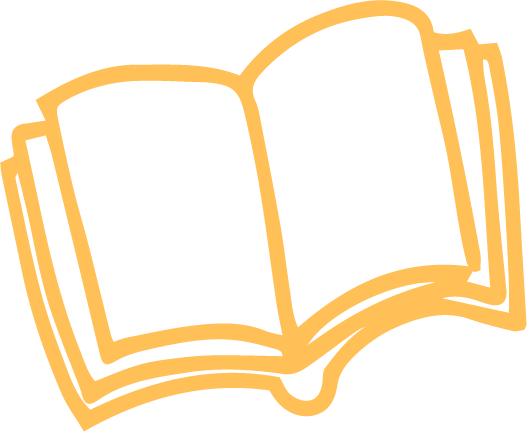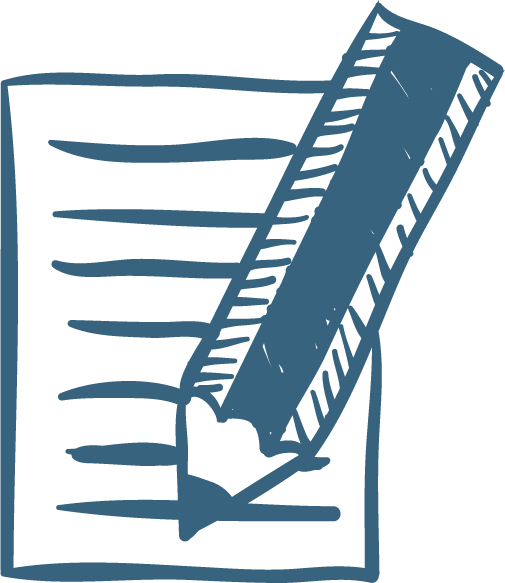In this section, you are going to learn how to talk about events that started in the past and are still in progress. The grammatical form you are going to practice is “present perfect”. This tense requires verbs in “past participle”. For that reason, in some of the activities, you will conjugate regular and irregular verbs so that you can use the correct form.
You may know something about this topic. So, it is a good idea to explore what you know so that you can learn new information quickly. You are going to start with a diagnostic evaluation. In this evaluation, you are going to try to complete text by conjugating verbs in the past participle.
Don’t worry if you can’t answer that first exercise, it’s just to explore your prior knowledge.
After that, you are going to learn about the present perfect, and how to conjugate verbs in that tense. It’s essential that you check that presentation carefully so that you learn about that topic as much as possible.
After the presentation, you are going to practice all the skills, which means that you are going to exercise your listening, reading, writing and speaking. It’s advisable to do all the activities in the suggested order because they have a logical sequence which will help you learn in a better way.
At the end of the material, you are going to find a final evaluation. You are going to see an exercise similar to the first one so make sure that you have learned something.

By the end of this lesson you will:
Put into practice the use of different adjectives to express a subject’s qualities through clothes and places.
Diagnostic exercise
Before you start working on the activities we have prepared for you, it is essential for you to try to recall some verbs in past participle that you probably know. In this way, you will learn more efficiently new information.
To do that, you are going to read some information about Valdo, a secret agent. Try to complete the following text with the verbs in parenthesis.
You can skip any verb you don’t know. This is a diagnostic evaluation. So, it is not necessary that you complete all the exercise. Complete only with the verbs that you know. Do not use any extra help. Remember, It is an exploration of your prior knowledge.
Valdo

(n. a.). (2016). Secret agent [Illustration]. Retrieved fromhttps://pixabay.com/es/agente-peligroso-detective-g%C3%A1ngster-1294795/
Content
The previous activity was intended to give you a general idea about the topic you are working. Now, you are going to watch a video to learn how to express ideas using present perfect.
Watch the video carefully. You can watch it as many times as necessary.
You can pause it when you consider necessary to better understand the content.
González, L. (february 13,2017). Past participles [Video file]. Retrieved from https://www.youtube.com/watch?v=L5aIFciYC9g
Now that you watched the video you can answer the following exercise.

Exercise 1
Grammar explanation and practice
YYou need to complete all the sentences using “present perfect” and the correct form of the verbs in the charts. When you finish, click on “check answer”.
If you need help with the past participle of any verb, you can visit this dictionary.
Exercise 2
Grammar explanation and practice
You now have a better idea about how to express your ideas using the present perfect. Complete the following exercise that focuses on practising verbs in the past participle.
This exercise is about a student named Ximena. She wants to go to a concert, but her parents don’t want to give her permission because they say she is a slacker. So she made a list of all the activities she has done this year.
She is going to show the list to her parents so that they realise that she has done many things and they let her go to the concert.
All the following sentences are about Ximena. Complete each sentence with the verbs in parenthesis. This is also a scramble letter exercise, where have to look up the verbs in the past participle.

Activity 1
In the previous activity, you practised some regular and irregular past participles. It’s important to take notes about the verbs that you practice so that you can improve your vocabulary little by little. Now, you are going to play a memory game in which you are going to continue exercising “past participles”. Remember that the more you practice, the more you will learn.
For this activity, you must first read the text about Antonia.
After reading the text about Antonia, you must click on a card to see the text on it. You have to complete ideas according to the text. You only have 15 opportunities to make all the pairs so pay careful attention to each sentence. If you are unable to complete the activity after 15 times, click on “try again” to try one more time.

Conniehdeutsch.com. (2016). Place [photo]. Retrieved on 2017, April 10 from http://conniehdeutsch.com/women-only-taxi-service/

Activity 2
So far, you have practised past participles in some written activities.
Now, you are going to have a speaking activity. To make the activity more realistic, imagine that you are with a group of friends and you are playing a game called “confessions”. Look at the possible questions and choose at least one. Make a recording talking about that experience. It should last between 45 seconds to 1 minute.
Use the questions provided so that you have more ideas about what to say.
Listen to an example of this activity here:
Now make your recording. When you are ready, use the following rubrics to evaluate yourself:
If you need to look up any word in a dictionary, we suggest you visit Cambridge Dictionary. In case you need it, you can look up the definition and pronunciation of any word.
Finally, we suggest you prepare what you are going to say. Write down your speech and practice it before you record. DO NOT read it while recording. Remember this is not a reading activity, it is a speaking activity.

Activity 3
Now, you are going to play a memory game to practice your listening. Click on a card to listen to either a question or an answer. You have to match each sentence with the corresponding answer. You only have 15 opportunities to make all the pairs so pay attention where each sentence is. If you can’t complete the activity after 15 chances, click on “try again” to play one more time.

Activity 4
Writing is the last activity you are going to practice in this section. It’s essential that you keep in mind the importance of using verbs in past participle to express events that started in the past and continue now.
In this activity, you have to write an article for a newspaper. The article is about: Interesting occupations. This time you are going to write about a doctor. You need to invent the information. Answer the questions to have ideas about what to include in your text.
Write between 100-120 words
Before you start, read the example:
When you finish, use the following rubrics to get your evaluation:
If you need to look up any word in a dictionary, we suggest you visit Cambridge Dictionary. There you can find a word you need.

At the beginning of this section, you worked with a text about Valdo, a secret agent. Now, you are going to complete a similar text about him.
Complete the text by changing with the verbs in parenthesis to the past participle.
Try to complete this exercise without help, so you know if you have learned something.

(n. a.). (2016). Secret agent [Illustration]. Retrieved from https://pixabay.com/es/agente-peligroso-detective-g%C3%A1ngster-1294795/
• González, L. (february 13,2017).Past participles [Video file]. Retrieved from https://www.youtube.com/watch?v=L5aIFciYC9g
• McCarthy M. Dell, F. (2010). Basic Vocabulary in Use. Cambridge: Cambridge University Press.
• Murphy, R. (2006). Basic Grammar in Use, A Self Study Reference and Practice Book for Elementary Students of English. Cambridge: Cambridge University Press.
• Murphy, R. (2007). Essential Grammar in Use, A Self Study Reference and Practice Book for Elementary Students of English. Cambridge: Cambridge University Press.
• Sellen, D. (2006). Grammar Tour. A Reference and Practice Grammar forElementary to Intermediate. Italy: Black Cat.
• Viney, B., et al. (2002). Grammar Practice for Elementary Students. Cambridge: Cambridge University Press.